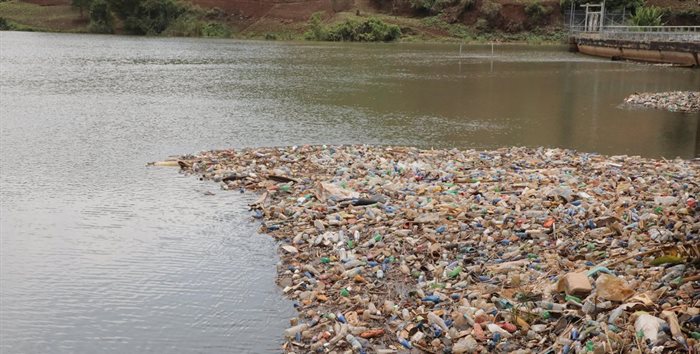
But for Elie Mapenzi Matabaro, the city's plastic problem is an asset, allowing him to both make money and create jobs for young people.
Seven years ago, his company, FDA Group, started transforming the bottles and other city waste into cheap, hard-wearing paving slabs that grace driveways and forecourts across the city.
"There was no system for protection of the environment. We started our business to help resolve the waste problem," Mapenzi said.
The city's mayor, Meschac Bilubi Ulengabo, said Bukavu has no proper dump for its 1.6 million residents, a situation which is far from unique in Africa. The United Nations Environment Program estimates that 70% to 80% of the municipal solid waste generated across the continent is recyclable, yet only 4% is recycled.
Every day, Mapenzi's trash collectors deposit mountains of plastic at the factory, where it is melted down and scraped into hexagonal metal moulds. Once the plastic has cooled, it is tapped out, piled high and sold to customers.
Erodia likes the plastic paving because it is easy to clean and helps fight environmental pollution in his province, he said. At the hydropower station, men with scuba gear dive to clear the turbine inlets of trash, while others in boats gather the waste floating on the surface.
A trash blockage has jammed one of the turbines for the last two and a half months, leading to interruptions in power supplies across the city, said Lievin Chizungu from the National Society of Electricity, which runs the plant.
"Unfortunately, there are no dumps and people throw their waste in the gutters and it just comes washed up here at the dam," Chizungu said.
Mapenzi has struck a deal with the plant operator to take away the plastics. "It is business that helps us to turn an environmental problem to an economic resource," he said.

Reuters, the news and media division of Thomson Reuters, is the world's largest multimedia news provider, reaching billions of people worldwide every day.
Go to: https://www.reuters.com/
